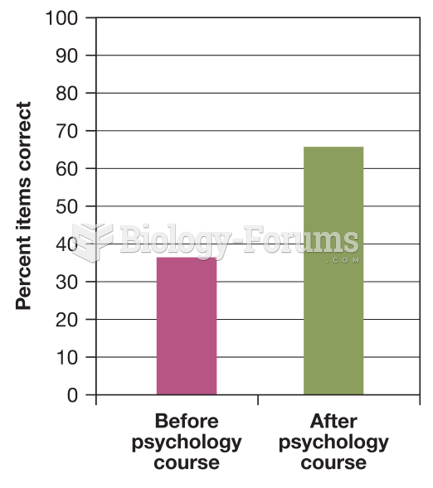|
|
|
Earwax has antimicrobial properties that reduce the viability of bacteria and fungus in the human ear.
The heart is located in the center of the chest, with part of it tipped slightly so that it taps against the left side of the chest.
For about 100 years, scientists thought that peptic ulcers were caused by stress, spicy food, and alcohol. Later, researchers added stomach acid to the list of causes and began treating ulcers with antacids. Now it is known that peptic ulcers are predominantly caused by Helicobacter pylori, a spiral-shaped bacterium that normally exist in the stomach.
Though newer “smart” infusion pumps are increasingly becoming more sophisticated, they cannot prevent all programming and administration errors. Health care professionals that use smart infusion pumps must still practice the rights of medication administration and have other professionals double-check all high-risk infusions.
Between 1999 and 2012, American adults with high total cholesterol decreased from 18.3% to 12.9%







